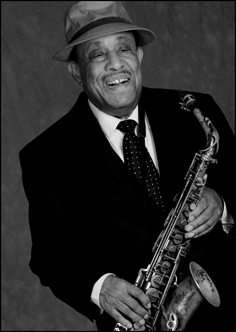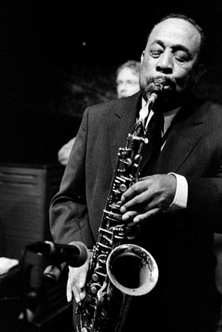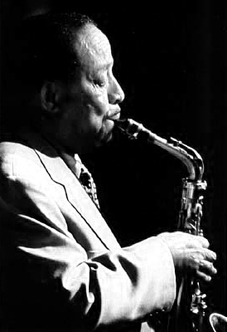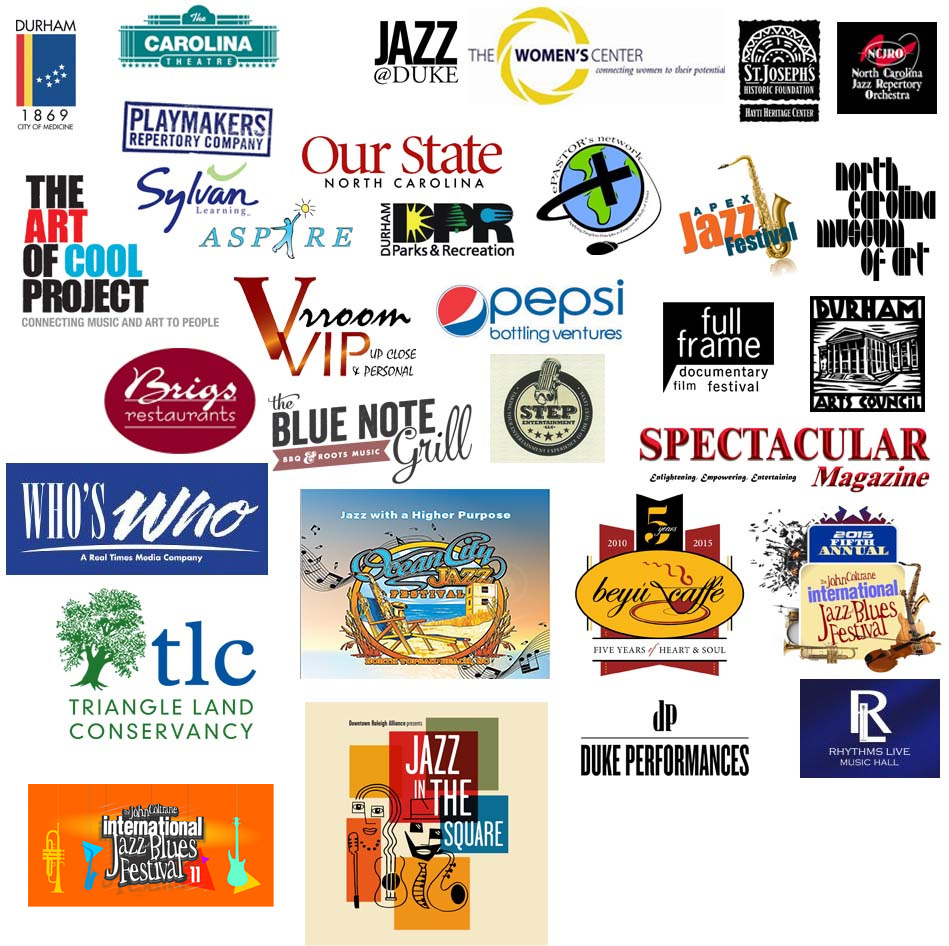Lou Donaldson
 Lou Donaldson, alto saxophonist, recording star and entertainer extraordinaire was born in Badin, North Carolina on November 1, 1926. He is the child of parents, Lucy Wallace Donaldson, mother, and Louis Andrew Donaldson, Sr., father. His mother was a first grade teacher at Badin High School, Musical Director at the school, and a concert pianist who was a graduate of Cheney University. His father was a graduate of Livingstone College, an AME Zion minister, and insurance agent. Lou is the second of 4 children, between older sister Margaret and younger sister Elizabeth and brother William, all of whom ended up involved with music. Lou never studied piano because his mother had a switch that she would crack across the fingers when students missed a note. That turned him completely away from being a pianist. When he was about 9 years old, she heard him singing or humming and she took him aside and told him that he had more musical talent than anyone in the family and that he needed to play some type of instrument. She got a clarinet from the Band Director, Leo Gabriel, at the Alcoa Aluminum Plant Band. Although she knew nothing about the clarinet, she taught him basic music and they used the clarinet book to learn the fingerings and how to play the clarinet. Lou mastered the instrument and this ignited his pursuit of a career in music.
Lou Donaldson, alto saxophonist, recording star and entertainer extraordinaire was born in Badin, North Carolina on November 1, 1926. He is the child of parents, Lucy Wallace Donaldson, mother, and Louis Andrew Donaldson, Sr., father. His mother was a first grade teacher at Badin High School, Musical Director at the school, and a concert pianist who was a graduate of Cheney University. His father was a graduate of Livingstone College, an AME Zion minister, and insurance agent. Lou is the second of 4 children, between older sister Margaret and younger sister Elizabeth and brother William, all of whom ended up involved with music. Lou never studied piano because his mother had a switch that she would crack across the fingers when students missed a note. That turned him completely away from being a pianist. When he was about 9 years old, she heard him singing or humming and she took him aside and told him that he had more musical talent than anyone in the family and that he needed to play some type of instrument. She got a clarinet from the Band Director, Leo Gabriel, at the Alcoa Aluminum Plant Band. Although she knew nothing about the clarinet, she taught him basic music and they used the clarinet book to learn the fingerings and how to play the clarinet. Lou mastered the instrument and this ignited his pursuit of a career in music.
At age 15, Lou matriculated to North Carolina A& T College where he received a Bachelor’s of Science degree and joined the marching band playing clarinet. After being drafted into the US Navy in 1945, he played in the Great Lakes Navy Band where, when playing for dances, he would also play the alto saxophone. After going into Chicago several times, he heard of Charlie Parker and he decided that this was the style of playing he would make his own. Returning from the military back to North Carolina A& T College, he played in the dance band led by Billy Tolles, who was a great saxophonist who played with several groups.
Lou went to New York in 1950. Being a GI and a Veteran he enrolled in the Darrow Institute of Music, which was a GI school, and was paid a monthly stipend so that he could survive. While at the school, he played many small clubs in Harlem where he lived at 127th Street and 8th Avenue with his new wife, Maker. Maker was his longtime sweetheart from North Carolina and remained his wife and business partner for 56 years until her death in 2006. Together they raised two children — Lydia, deceased, who was a nurse and educational recruiter, and Dr. E. Carol Webster, clinical psychologist and author who resides in Fort Lauderdale and who, along with husband Charles, founded the African American Success Foundation that Lou very happily supports each year by doing a Jazz Benefit.
Once he moved to New York, Lou worked weekends in Jersey with Dud Bascomb’s band. One night while working at Minton’s Playhouse — the famous jazz club, he was approached by Alfred Lyons of Blue Note Records to make a recording and he suggested that Lou make a Charlie Parker-type recording which he did with the Milt Jackson Quartet. At that time, it was Milt Jackson, Percy Heath, John Lewis, and Kenny Clark. Later on this group would be called the Modern Jazz Quartet. The record was successful and the company asked him to make a record on his own and this is why he’s most proud of his time at Blue Note Records– because this date started a career for him that actually made him bring several musicians to Blue Note Records.
In the mid 60’s, Lou furthered his success as a musician and businessman. He set up his own tour of clubs — which was no easy feat in those days. Beginning in Rochester, NY, then to Buffalo, NY, and on to Pittsburgh, Pa. — where he worked two great clubs.
During these memorable years, Lou had four distinct groups that he would use for the organ sound: one group was John Patton on organ, Bill Hardman on trumpet, Grant Green on guitar, and Ben Dixon on drums. Another group was Lonnie Smith on organ, Billy Kaye on drums, Mark Elf on guitar — and sometimes Melvin Sparks on guitar, and Joe Dukes on drums — the greatest organ drummer of all times. Later he had another group with Caesar Frazier on organ, Eric Johnson on guitar, and Billy Kaye on drums with Sweet Lou on alto. Another of Lou’s groups had Charles Earland on organ, Jimmy Ponder on guitar, Blue Mitchell on trumpet, and Idris Muhammad on drums. These groups played mostly the so-called “ghetto clubs” where the fans really got into their music and sometimes they were booked even for dancing. It was a very successful set up and several other people like Hank Crawford, Jack McDuff, Groove Holmes, Sonny Stitt, and even Dizzy found out about these clubs and had a good run following this idea. Later in the ‘80’s,
Lou was awarded the honorary Doctorate of Letters by North Carolina A& T University and a scholarship was established in his name that is awarded to the most gifted jazz musician at North Carolina A&T University each year. He was inducted into the International Jazz Hall of Fame and is the recipient of countless other honors and awards for his outstanding contributions to jazz.

